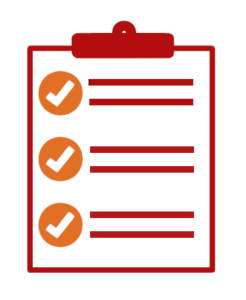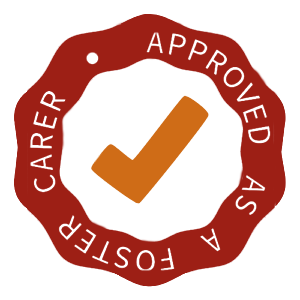
Research
You’ve already begun this stage of the process – finding out about the different types of foster carer and whether fostering is right for you. There are many books available to help you make that decision as well as finding out as much as you can about the children needing foster carers.

Choosing the right fostering provider
Find out about the types of fostering and which you think would suit you most before you find a fostering provider that’s right for you and willing to assess you as a foster carer.
Read more
There are two main types of fostering service:
Local authorities (in England, Scotland and Wales) and Health and Social Care Trusts in Northern Ireland, which look after children and young people in care – sometimes known as their corporate parent. They also assess, train and approve foster carers to care for them.
Independent fostering providers (IFPs) are focused solely on recruiting and training foster carers for children who are in the local authority’s care. IFPs can either run on a profit-making basis or a not-for-profit basis, sometimes with charitable status.
Your fostering service will be there to assess, train and support you as well as provide a financial package, so it is important that you find the one that feels right for you. Fostering services often run events and we recommend that you attend a few. These events will help you get an idea of which service you think you could work with. You may want to consider the following:
- How easy is it to reach?
- Are they recruiting?
- How welcoming are they?
- What services and support do they offer?
Find fostering providers in your area
Getting turned away
If the fostering service cannot help you after initial contact don’t despair! Make a note of the reasons they give and then speak to another service. Different providers all have their own immediate needs and priorities, and being turned away by one does not necessarily mean you are unsuitable to be a foster carer.
The Assessment Process
When you have found a service you are comfortable with, you will begin the formal process of becoming an approved foster carer which falls into three main stages.

Basic checks
The first stage looks at your basic eligibility to foster and includes things like references and a DBS check. Fostering providers have 10 days from the receipt of all information to make a decision on whether you can proceed to the next stage.
Read more
Checks and References
The agency will then collect basic factual information from you and your household such as:
- names and dates of birth, occupation, income.
- three referees the agency can contact, two of which must not be related to you
- basic information on the kinds of child you are open to adopting
Medical Report
You will be required to undergo a medical with your GP which will then be considered by the agency’s Medical Adviser. This is simply to ensure that you are fit enough to cope with the rigours of parenting. Any medical issues that arise from this report will be discussed with you, and sometimes further information will be sought.
Criminal Background Check
Adoption agencies will also need you to complete criminal background check (DBS) is simply to confirm that you have no convictions or cautions that would prevent you from being an adoptive parent. It’s important that you share anything that might come up with your adoption agency as they can then work through any potential issues with you.
If at any point you decide you don’t want to go ahead to the next stage of the process, speak to your social worker. It may not be the right for you or you may want to return to it later in life when you feel your circumstances are more suitable to foster.

Training and assessment
At this point you will begin a series of fostering preparation group sessions that will give both the fostering provider and you a good idea of whether it’s right for you and your family.
Following these a dedicated social worker will work with you and your family in more depth, assessing your strengths before presenting it in the Form F report to the fostering panel who make the final recommendation on your suitability to become a foster carer.
Read more
Over the following months you will be trained and assessed and ultimately a decision made on whether you are suitable to foster a child.
Training, Support and Development Standards (TSDS)
The TSDS provide provide a professional framework for the professional training and development of all foster carers in England. You may even be provided with a workbook to use with your social worker that will provide evidence of your ability to perform the required skills to be a foster carer.
Preparation Groups
You will be invited to attend a series of preparation groups and training sessions with other prospective foster carers, which will help you explore the benefits and challenges of fostering. You will also have the opportunity to meet experienced foster carers and learn about a range of issues including:
- backgrounds of the children needing fostering.
- child protection.
- working with birth parents.
- specialist parenting skills needed to care for children who may have experienced neglect and abuse.
- working with social workers as part of the child’s care team.
- helping children to move on beyond your care and say “goodbye”
The “Home Study”
The main part of the assessment is a series of visits made by a social worker from your fostering service to your home. During this time the social worker gets to know you and your family and spends time helping you think about what strengths you could bring to fostering.
During this time the social worker will have conversations with you about your childhood and your experiences of growing up. They will ask you about how you have dealt with past experiences. Your capacity to reflect on your own past experiences may well be important in the future as you help a child reflect on things that have happened in their early years. Be open and honest and this will enable your social worker to get a full picture of your strengths and weaknesses which in turn will help them match you with a child whose needs you can meet.
Talking to family and friends
As well as speaking with you, and your partner if you are a couple, your social worker will also meet any children you have and other people who live with you, as well as some of your wider friends and family in order to build a picture of who you are and the types of parents you would be. The agency may also want to contact previous partners, especially if there have been children involved in the relationship, and any adult children you or your partner might have.
While this might seem intimidating remember that this is done with the best interests of the children in mind. Former partners do not have any veto over your right to foster, but your social worker may want to discuss with you why your relationship ended and what you learnt from it.
Assessment Report
All the training and conversations feed into the assessment report, known as “Form F” which will outline what sort of carers you would be and how you would be able to support the kinds of children in care. It will evidence how you have the the resilience and emotional maturity to be a good foster carer, and that you have the capacity to work alongside social services and other support workers in providing the necessary support package for the child you are caring for. Once the report is complete, you will be provided with a copy to comment on before it is submitted to the services Fostering Panel.
Going to Panel
The panel is made up of fostering experts, experienced foster carers and is independent of the fostering service. They review all the evidence presented to them and then make a recommendation back to the fostering service’s decision maker on whether you are suitable to foster a child. Your assessing social worker will attend to answer any questions they may have and you would also be invited to attend.
Making a decision
Your fostering services decision maker will decide if you are suitable to foster. The decision maker is a senior figure within the fostering service who has the legal responsibility to make an approval decision. In most circumstances the decision maker accepts the panel’s recommendation.
Appealing a decision
If your application is turned down you must be notified of this in writing together with the reasons. If you disagree with the decision, you may request that your application is considered by the Independent Review Mechanism within 28 calendar days. The IRM will review your application and then make recommendations to your service. It is then up to the service’s decision maker to consider the recommendations and make a final decision.

Final assessment
The fostering panel makes the final recommendation about your suitability to be a foster carer.
Read more
There are two main types of fostering service:
Local authorities (in England, Scotland and Wales) and Health and Social Care Trusts in Northern Ireland, which look after children and young people in care – sometimes known as their corporate parent. They also assess, train and approve foster carers to care for them.
Independent fostering providers (IFPs) are focused solely on recruiting and training foster carers for children who are in the local authority’s care. IFPs can either run on a profit-making basis or a not-for-profit basis, sometimes with charitable status.
Your fostering service will be there to assess, train and support you as well as provide a financial package, so it is important that you find the one that feels right for you. Fostering services often run events and we recommend that you attend a few. These events will help you get an idea of which service you think you could work with. You may want to consider the following:
- How easy is it to reach?
- Are they recruiting?
- How welcoming are they?
- What services and support do they offer?
Find fostering providers in your area
Getting turned away
If the fostering service cannot help you after initial contact don’t despair! Make a note of the reasons they give and then speak to another service. Different providers all have their own immediate needs and priorities, and being turned away by one does not necessarily mean you are unsuitable to be a foster carer.


